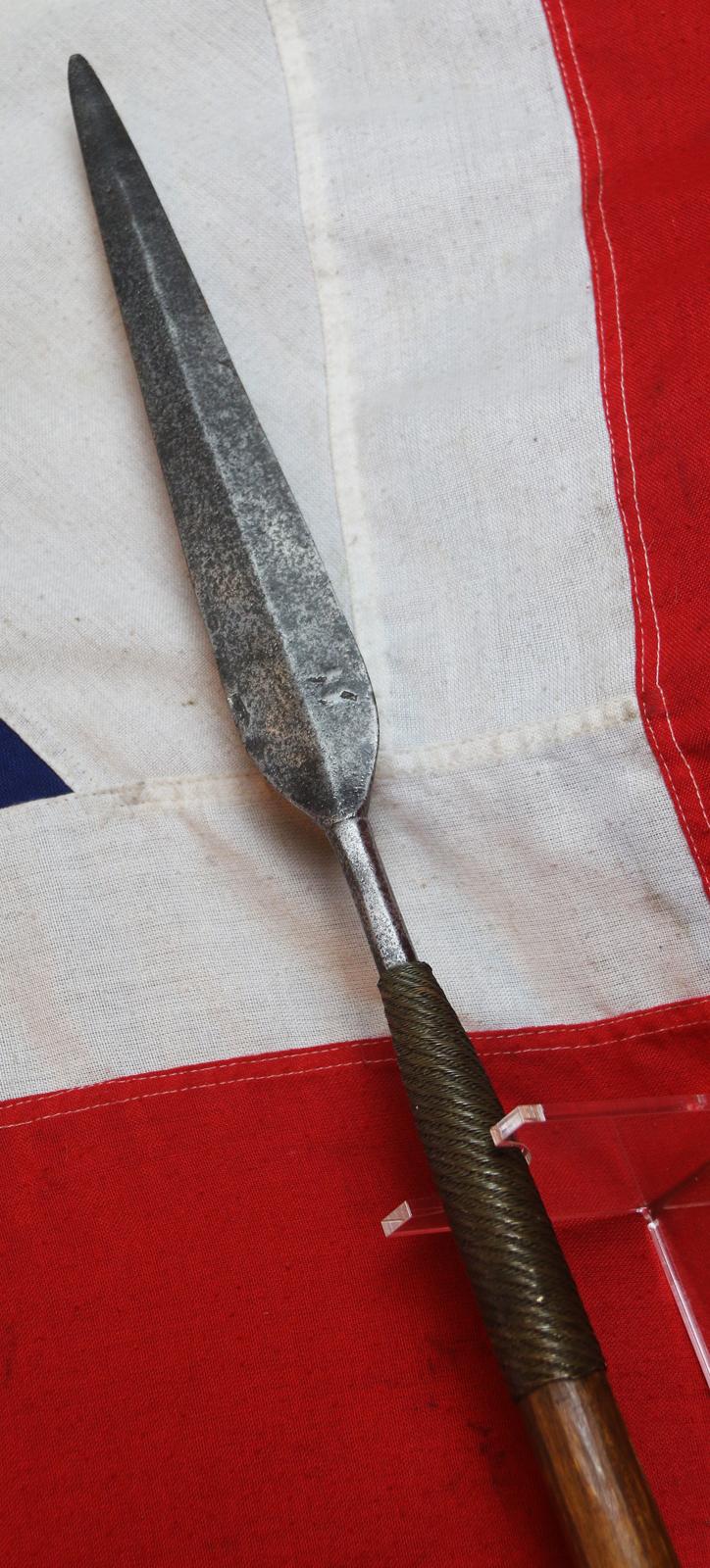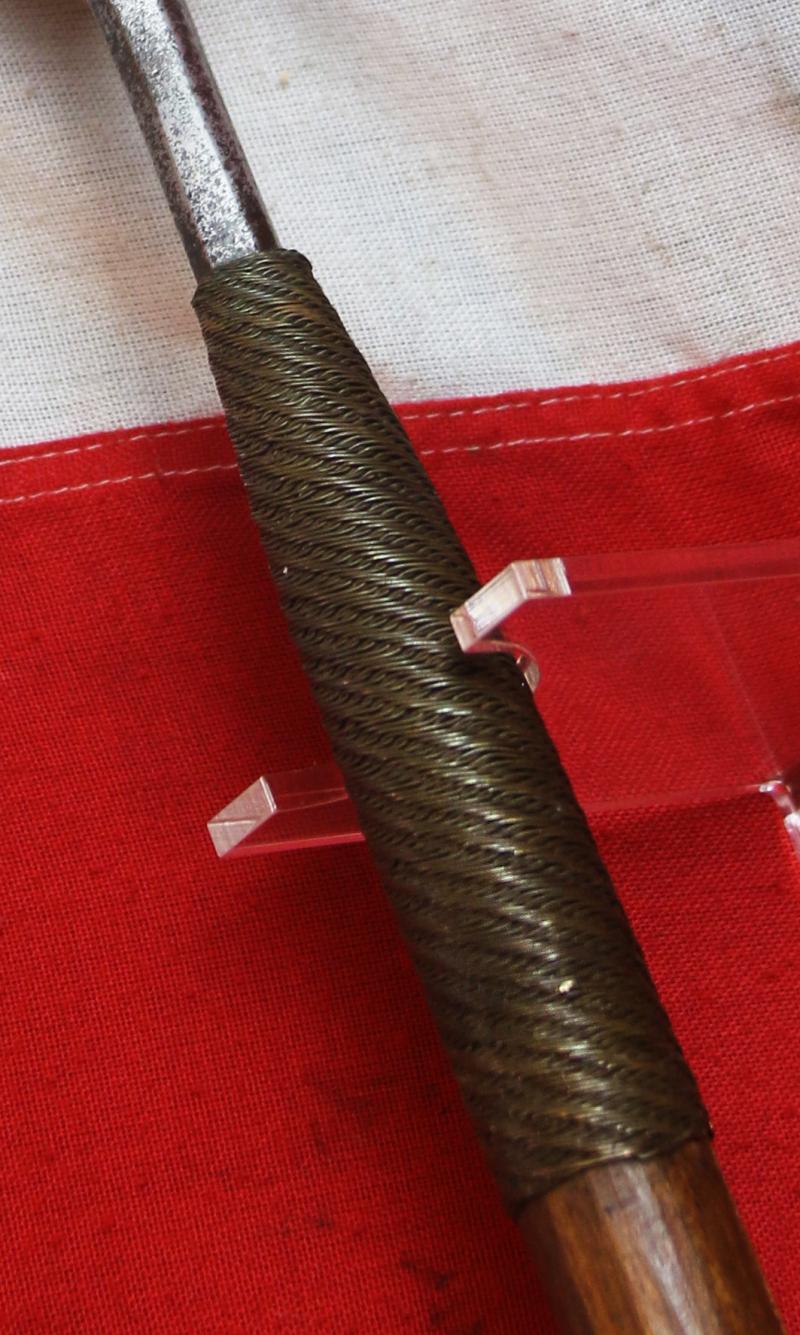A Most Rare Original Zulu War of 1879 Souvenir. A Zulu War Spear, The Iklwa, With a War Club Knopkerrie at the Opposite End of the Spear . A Double Headed Weapon Combination Piece
Traditional stabbing spear, the head is superbly bound to the haft with British telegraph wire in a geometric woven pattern, but with, and very rarely seen, a carved knopkerrie war club ball end. In many years we have only ever seen a few other surviving original examples, that were actually from the Zulu war period, a war souvenir of a veteran, and such a very, very rare form of Zulu close double purpose combat weapon. Plus all the best and rarest wire designs added as decor to Zulu weapons are always the most desirable to collectors of original wartime Zulu weaponry.
The British network of telegraph cables that stretched across South Africa provided a convenient source of copper for the enterprising Zulu and in the 1870’s hundreds of miles of copper wire was cut down from the telegraph poles, that needed constant repair. Then some higher ranking Zulu impi were using some to weave geometric pattern designs to their war clubs knopkerrie and spears iklwa..
The Anglo-Zulu War was fought in 1879 between the British Empire and the Zulu Kingdom. Following the passing of the British North America Act of 1867 forming a federation in Canada, Lord Carnarvon thought that a similar political effort, coupled with military campaigns, might succeed with the African Kingdoms, tribal areas and Boer republics in South Africa. In 1874, Sir Bartle Frere was sent to South Africa as High Commissioner for the British Empire to effect such plans. Among the obstacles were the armed independent states of the South African Republic and the Kingdom of Zululand.
Frere, on his own initiative, sent a provocative ultimatum on 11 December 1878 to the Zulu king Cetshwayo and upon its rejection sent Lord Chelmsford to invade Zululand.The war is notable for several particularly bloody battles see below, including an opening victory of the Zulu at the Battle of Isandlwana, followed by the defence of Rorke's Drift by a small British force from attack by a large Zulu force. The British eventually won the war, ending Zulu dominance of the region.
Battle of Isandlwana; the battle fought on 22nd January 1879, at which the Zulus wiped out a substantial British force, including the 1st Battalion, 24th Foot and rocked Victorian society.
Battle of Rorke’s Drift; the iconic defence of the mission station in Natal on 22nd January 1879, by a small force of British and colonial troops; winning a record number of Victoria Crosses and inspiring Victorian Britain.
Battle of Khambula; the defeat by Colonel Evelyn Wood of a Zulu army on 29th March 1879, in the opening stages of the Zulu War.
Battle of Gingindlovu; the battle fought on 2nd April 1879, where Lord Chelmsford defeated a Zulu army on his route to overwhelming the Zulu nation at Ulundi.
Battle of Ulundi: The final battle of the Zulu War, fought on 4th July 1879, where Lord Chelmsford’s troops destroyed the army of the Zulu King Cetshwayo.
Code: 24804
Price
on
Request




